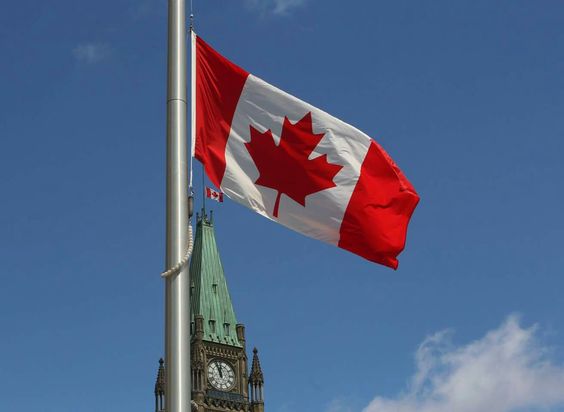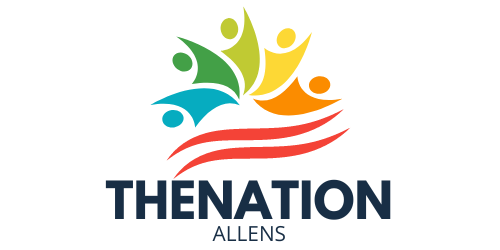What is Canada Official Name: You Need to Know

What is Canada Official Name
Canada’s official name is simply Canada. There is some historical context to be aware of though. In the past, Canada was sometimes referred to as the “Dominion of Canada”, especially in more formal settings. However, this term is rarely used nowadays, and the Canada Act of 1982 only refers to the country as Canada. Both official Canadian government sources and international organizations like the United Nations consider “Canada” to be the sole official name.
Understanding Canada’s Official Name
What Constitutes an Official Name?
An official name of a country is more than just a label. It’s a legal identity recognized by its citizens and other nations. This name is used in official documents, international treaties, and legal contexts. For Canada, the official name encapsulates its history, governance, and cultural heritage. Don’t Miss to Check Out Our Website: THENATION ALLENS
Importance of an Official Name for a Country
An official name is crucial as it conveys the nation’s identity and sovereignty. It signifies the nation’s place in the world, its governance structure, and its historical journey. For Canada, its official name underscores its evolution from a colonial territory to a modern nation.

Canada’s Official Name
The Full Official Name
Canada’s official name is “Canada.” However, historically, it was known as the “Dominion of Canada.” This designation has historical roots that reflect the country’s status within the British Empire.
Historical Context
The term “Dominion of Canada” was first used at the confederation in 1867. It signified Canada’s self-governing status within the British Empire, distinguishing it from a colony.
The Dominion of Canada
Origin of the Term “Dominion”
The term “Dominion” was suggested by Sir Samuel Leonard Tilley, a Father of Confederation. He drew inspiration from Psalm 72:8, “He shall have dominion also from sea to sea,” reflecting the vast expanse of the country.
Historical Usage and Evolution
Initially, “Dominion” was commonly used to describe Canada. Over time, especially after World War II, the use of “Dominion” declined as Canada asserted its identity as an independent nation.
Historical Background
Indigenous Names and Territories
Before European contact, Canada was home to diverse Indigenous peoples, each with their own names for the land. These names reflected the deep connection between the land and its original inhabitants.
European Exploration and Naming
European explorers, including John Cabot and Jacques Cartier, charted the land and claimed territories for their monarchs. The name “Canada” is derived from “kanata,” a St. Lawrence Iroquoian word meaning “village” or “settlement.”
The British North America Act
Formation of the Dominion
The British North America Act of 1867 united three colonies into a single entity called the Dominion of Canada. This act laid the foundation for the country’s federal structure.
The Significance of 1867
July 1, 1867, marks the birth of Canada as a self-governing dominion within the British Empire. This date is celebrated annually as Canada Day.
Modern Usage
How the Name Is Used Today
Today, “Canada” is the commonly used name for the country. While “Dominion of Canada” is historically significant, it’s rarely used in modern contexts.
Government and Legal Documents
In legal documents and government publications, “Canada” is the official term used. The simplicity of the name reflects the nation’s straightforward identity.
Official Languages
English and French Versions of the Name
Canada is officially bilingual. In French, the country is referred to as “Canada” as well, but official documents will often include both English and French text to reflect this dual heritage.
Bilingual Representation
All federal government documents, currency, and national symbols are presented in both English and French, embodying Canada’s commitment to bilingualism.
International Recognition
How Canada Is Recognized Globally
Internationally, Canada is known simply as “Canada.” This name is recognized in diplomatic circles, international organizations, and global treaties.
Diplomatic and International Contexts
In the United Nations and other international forums, “Canada” stands as a respected name representing the country’s values and global contributions.
Comparison with Other Countries
Differences in Naming Conventions
Countries have various naming conventions based on history and governance. For instance, the United States of America highlights its federal structure, while the United Kingdom of Great Britain and Northern Ireland emphasizes its composite nations.
Examples of Other Countries with Similar Structures
Other countries like the Commonwealth of Australia or the Federal Republic of Germany use names that reflect their political systems. Canada’s simple “Canada” mirrors its streamlined identity.
Symbolism and Identity
National Identity and Symbolism
Canada’s name is a cornerstone of its national identity. It’s synonymous with values like peace, inclusivity, and natural beauty.
Role of the Name in National Pride
The name “Canada” evokes a sense of pride among its citizens, symbolizing a diverse, inclusive, and progressive nation.
The Maple Leaf and Other Symbols
Connection to National Symbols
The maple leaf is a prominent national symbol directly associated with Canada. It appears on the national flag and represents the country’s natural beauty and resourcefulness.
Representation in Flags and Emblems
Canada’s flag, with its iconic red maple leaf, is recognized worldwide. This emblem, alongside the country’s name, reinforces Canada’s identity.
Fun Facts About Canada’s Name
Interesting Trivia
- Canada is the second-largest country in the world by land area.
- The name “Canada” is believed to originate from the Iroquoian word “kanata.”
- Canada has the longest coastline of any country in the world.

Lesser-Known Facts
- “O Canada” became the national anthem in 1980.
- The Royal Canadian Mounted Police are a global symbol of Canada.
Common Misconceptions
Misunderstandings About the Name
Some believe “Dominion of Canada” is still commonly used, but it’s largely historical. Another misconception is that Canada has no indigenous names, yet many places retain their original names.
Clarifications
While “Dominion” was part of the official name, it has faded in everyday use. Indigenous names continue to be recognized and respected, reflecting the country’s rich heritage.
Conclusion
Canada’s official name, simply “Canada,” encapsulates its journey from a collection of colonies to a vibrant, independent nation. Understanding this name reveals a rich history and a strong sense of identity. As Canadians, the name “Canada” fills us with pride, symbolizing a land of vast landscapes, diverse cultures, and enduring values.
FAQs
What was Canada called before 1867?
Before 1867, Canada was referred to as the Province of Canada, which was divided into Upper Canada and Lower Canada.
Why is Canada called the Dominion?
The term “Dominion” was adopted at confederation in 1867 to reflect Canada’s status as a self-governing entity within the British Empire.
What is the French official name of Canada?
In French, Canada is officially referred to as “Canada.” Government documents are bilingual, using both “Canada” and “le Canada.”
How did Canada get its name?
Canada’s name is derived from the St. Lawrence Iroquoian word “kanata,” meaning “village” or “settlement.”
Is “Dominion of Canada” still used today?
While “Dominion of Canada” is historically significant, it is rarely used in modern contexts, with “Canada” being the standard term.

Welcome to TheNationalLens.ca, where Benjamin provides a sharp and insightful view into the heart of Canadian news and culture!
Benjamin is a seasoned writer with a deep passion for storytelling and a commitment to uncovering the truths that define our nation. With a focus on in-depth analysis and comprehensive reporting, Benjamin’s work spans a wide array of topics, including politics, economics, social issues, and beyond.
































































































